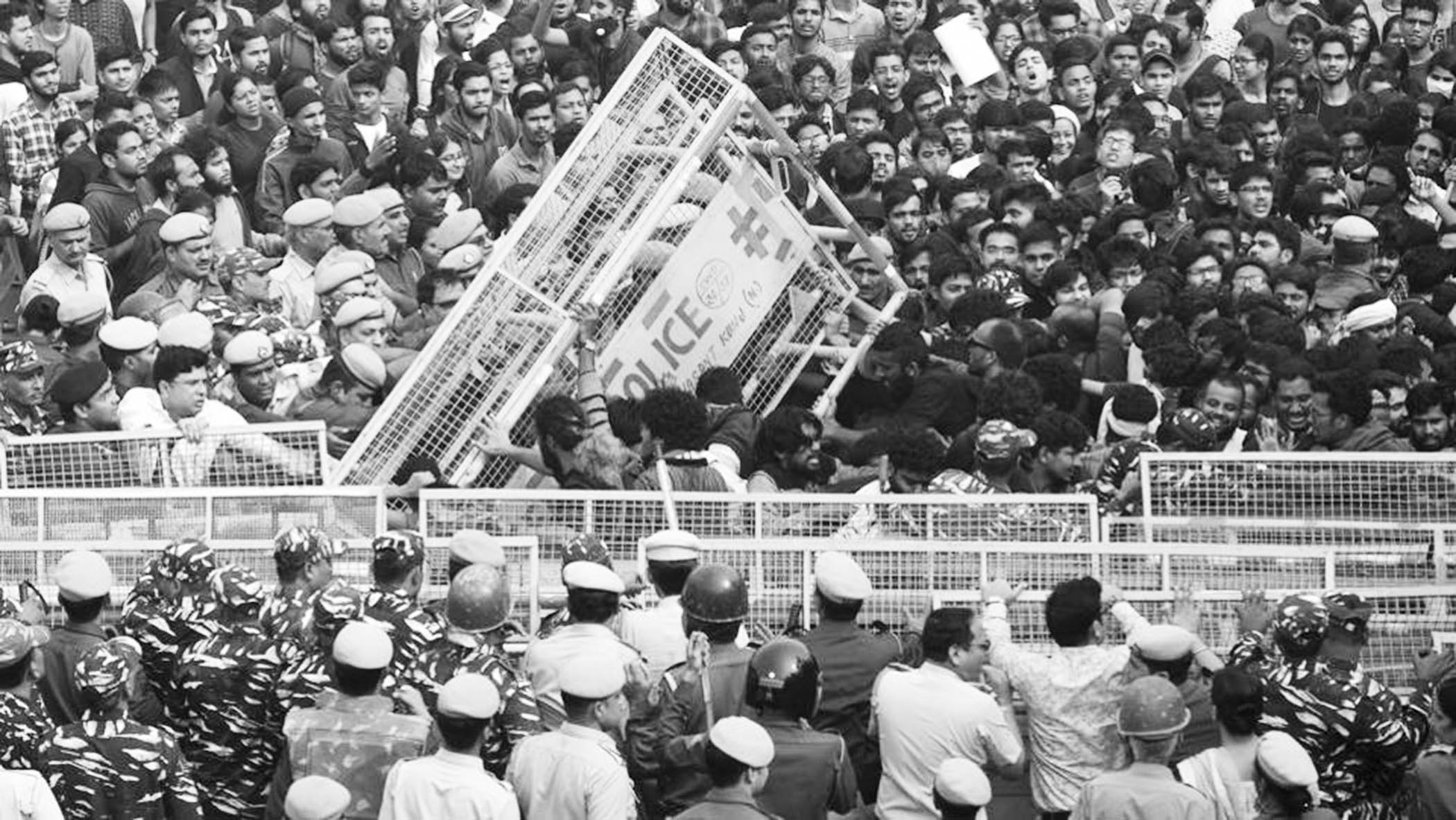
Twinkle Siwach
JAWAHARLAL Nehru University is a public funded central university that attracts the dreams of many students who come from remote villages of this country. By the new rules, a large number of students will be forced to leave their education because they will fail to pay the increased fees. For more than 15 days, JNU students have been protesting against fee hike and the Inter-Hall Administration (IHA) hostel manual that proposes regressive guidelines for students. The new hostel manual curbs the timings for students to be outside their hostels, which was 24x7 possible earlier, the dhaba timings are reduced to 11 pm, and asks the students to be “appropriately dressed in the dining hall”.
The executive council meeting was held on November 13, for which the venue was shifted from Convention Centre, JNU to Association of Indian Universities, AIU House, 16, Indrajit Gupta Marg, New Delhi-110002 quoting “the current venue has been blocked by striking students”. If the vice-chancellor is aware that students are protesting, what is the need to run miles away from the university premises to conduct a meeting? In an interview on the same night, to Republic TV, the VC claims that students are lying and they are allowed to meet him on every Monday with or without appointment; the question then is where has he been hiding if he is not available to meet the students at his office and why has he not met the students yet? There has been absolutely no scope for dialogue with the VC specifically on this issue. He is the same vice-chancellor who was celebrating Holi and inviting students sitting on hunger strike for sweets when they were resisting against the hike in fee structure in the recent prospectus for the academic year 2019-20.
The JNU EC passed a 50 per cent rollback for BPL students only. Still, they are supposed to pay 50 per cent more from existing fee structure. And when, the scholarship remains Rs 2000 (BA/MA – MCM) and Rs 5000/8000 (MPhil/PhD) then, how are students supposed to pay the increased fees? The roll back is a farcical statement by the administration to clean their image for the media while students’ protest continues. The service charge and utility charges are additional charges whereas there is a massive hike in the room rent charges (from Rs 20 (double seater)/10 (single seater) to Rs 200/100).
A day prior to that, third convocation programme was held at the AICTE auditorium and the venue was protected by barricades, battalions of police and CRPF officers. Are students of his own university so harmful to this VC? Again, why did he run away after the ceremony and did not agree or come out to meet the thousands of students who had gathered after crossing all the barricades. Many students faced lathi-charge, water cannons, and injuries in the clash with the police.
Over the years, students from marginalised sections have been able to avail education due its progressive fee structure and presence of gender just institutional bodies like GSCASH (Gender Sensitisation Committee against Sexual Harassment) now replaced by Internal Complaints Committee which has already compromised the safety for women students in the campus. ICC was brought in scrapping GSCASH, which was comparatively progressive, much transparent, and in the past few years, we have witnessed cases of compromise where ICC has only protected the interests of the accused particularly in the cases of female students versus male faculty. The case of Atul Johri is one such prominent case, where despite numerous female students’ complaints, neither any action was taken nor any restraint order was issued. In fact, he continued his service in the lab and as warden in one of the hostels despite the female students’ continued concern of feeling unsafe. In addition, the complainants were threatened in more than one occasion to take back their complaints.
In its totality, the existing IHA manual is against social justice model of JNU, which has been in place for all these years. It is the fight to save an institution when many of the matters are already decided and dictated from the administrative building. The fight is to defend public funded education; the fight is against privatisation and commercialisation of education. We, as students of the university, being part of the progressive forums, realise that the current proposal of fee hike is reflective of the larger idea of self-financing courses that represents the nature of exclusion of marginalised sections from higher education. We stand collective against the neoliberal assault on public education.


